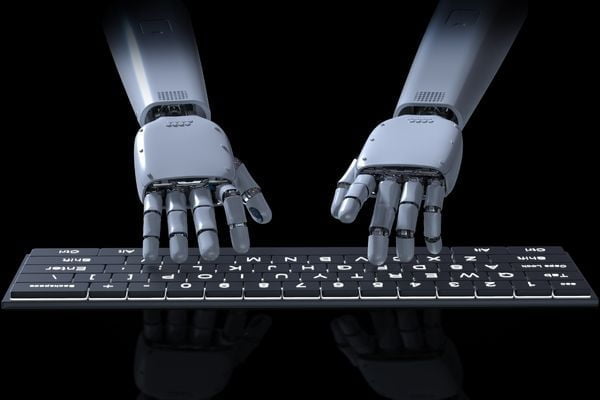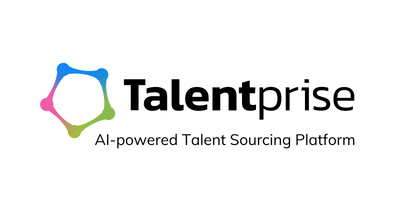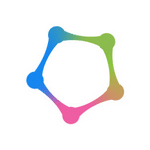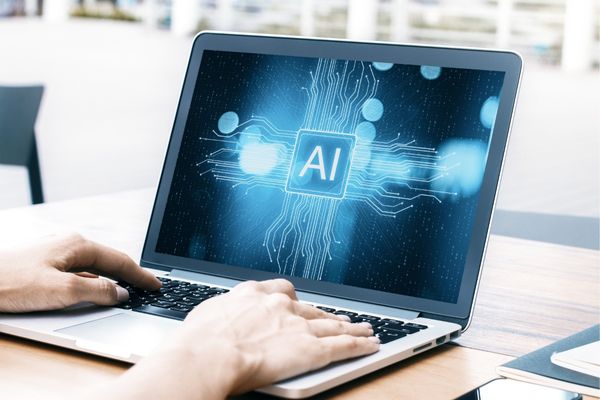Job search sites have incorporated Artificial Intelligence (AI) into their recruitment processes so as to more efficiently and accurately match job seekers with employers.
AI-based technologies have been developed to analyze the skills and qualifications of job seekers, scour hundreds of job postings and websites, and even perform automated audio and video interviews to help companies identify suitable job candidates. It has overall drastically reduced the hiring process time.
AI is able to perform the highly tedious and time consuming job of reviewing applications quickly, accurately, and quite often at a lower cost than traditional methods.
AI can also help employers identify gaps in their staff, offering them a more efficient way to find the right employees.
Let’s discuss how AI is changing the way job search sites recruit applicants. Also, learn how businesses can take advantage of this technology for improved hiring results.
AI Algorithms and Their Role in Recruitment

You’ve probably noticed that job recruitment platforms have become increasingly sophisticated. That’s because AI algorithms are helping many companies find candidates more accurately. Take applicant tracking systems (ATS). These algorithms automatically sort through thousands of resumes and applications to narrow down the potential pool of candidates.
ATS uses a range of criteria—skill sets, education, years of experience—to identify which applicants are the best fit for a role.
An Applicant Tracking System (ATS) is a technology used by organizations to efficiently manage the recruiting process.
It helps recruiters to source, track, and manage job applicants and applicants’ data across all stages of the hiring process, from initial contact to post-hiring follow-up.
ATS also automates many tasks associated with recruitment, such as posting job openings to job boards, screening resumes, auto-replying to applicants, scheduling interviews with selected candidates, and collecting feedback from interviewers.
With this powerful and efficient technology, organizations can reduce manual effort, increase recruitment speed, and hire the best talent for their organization.
Benefits of Using Artificial Intelligence (AI) in Recruitment Process
Popular Job Search Sites and Their Use of AI for Recruitment
A report indicates that 6 in 10 businesses are spending money on automated processes in hiring. They believe it will boost efficiency and allow for data-driven decisions.
Most popular job search sites and social media sites use AI for recruitment.
Such companies include LinkedIn, Indeed, and even Facebook. They use AI algorithms to learn your preferences, past experiences, and skills. It helps them to find the jobs that fit you best.
Understanding Your Preferences
AI algorithms can recognize patterns in data. It makes it easier for job search sites to understand what kind of job candidates you’re looking for. Thereafter, matching them with the right job opportunities.
Automating Job Postings
AI algorithms are also used for automating job postings on popular websites. AI can scan hundreds of resumes in record time. It can identify the most suitable candidates for specific roles.
This means companies don’t have to spend time manually sifting through candidates. AI does it all for them!
Recognizing Skills
AI algorithms can also help with talent sourcing. This is done by recognizing certain skills in your profile that are applicable to a certain job role.
For example, if you have worked with a particular software or technology before, you may be matched with job postings that require those same skills.
This makes it faster and easier for recruiters to find the best talent. This is done without having to comb through resumes manually.
How to Best Leverage a Job Search Site’s AI Capabilities?
You might be wondering, how can I best leverage a job search site’s AI capabilities to recruit the best applicants?
First, companies should make sure they craft their job postings with AI in mind. This helps the search engine to be able to better understand the role and bring in quality candidates.
You can also include related keywords in the description which will help to optimize it. It ensures easier discovery from potential applicants.
Track Applications
Popular job search sites have advanced analytics tools that allow you to track your applications. These tools also help to measure the success of each campaign.
This is beneficial when it comes to recruitment planning. It allows you to easily identify which job descriptions are performing better. Also, it helps to adjust them accordingly, maximizing conversions.
Personalization
AI can also help recruiters customize their communication with applicants. It can even automate certain tasks such as scheduling interviews or sending follow-up emails.
Using AI-powered automation tools allows recruiters to focus their energy on more pressing tasks. This is done by streamlining the application process for a smoother experience.
These are just a few of the many ways that AI is helping companies recruit top talent more efficiently. By improving candidate search outcomes and managing applications with personalized touchpoints, companies can employ the best.
Challenges of Using AI for Recruitment
For starters, AI bias is a major concern when it comes to using machine-learning algorithms. This can occur when an algorithm is only trained on a certain demographic, leading it to favor certain types of candidates over others.
Other issues include a lack of transparency, inadequate data from past hires, a lack of legal framework and regulations, and difficulties in predicting learner performance in the long term.
Despite these challenges, AI can still offer invaluable insights and process efficiencies that companies can leverage in the recruitment process.
Here are some of the common challenges when it comes to using AI for recruitment:
Complicated Algorithms
AI algorithms can get fairly complicated. It requires companies to create detailed job descriptions. If done incorrectly, they could filter out the wrong candidates. This may be due to oversights in their job criteria and qualifications.
Costly Processes
The cost of developing, maintaining, and monitoring AI systems can be extremely expensive. Depending on how much automation is involved in the recruitment process, the more costly it might become.
Time Management
AI systems require constant oversight. This involves maintenance in order to ensure accuracy. It also requires up-to-date information when considering applicants’ qualifications and experiences.
Not only that but ensuring the system operates properly in a timely fashion. This and others are a few of the concerns many companies that implement AI systems face
Conclusion
AI is improving crucial hiring processes to increase efficiency and effectiveness. It has become a delight for both recruiters and job applicants.
The immense benefit of using AI in the recruitment process are enormous. It helps to reduce time spent in the manual recruitment process. It makes it easy to find the perfect applicant for the job.
AI platforms are changing the way job search sites function and operate. With AI, recruitment efforts become more efficient and effective; job seekers can get better matches for relevant jobs and employers can choose from a deeper selection of qualified applicants.
In short, AI is allowing job search sites to optimize their recruitment efforts and better serve their customers with speed and accuracy.
About Talentprise
Talentprise is a skill-driven AI recruiting platform for employers to find top-fit candidates, while helping job seekers land jobs they deserve.

Let’s help you fast-track your next hire with Talentprise’s AI-powered job posting. Register an account today and post your jobs online.

Editorial Team
Our team is fueled by a passion for crafting valuable content that enriches the experiences of our users, customers, and visitors. We meticulously select meaningful and unbiased topics ranging from tips and guides to challenges and the latest in technology, trends, and job market insights. All curated with care and affection!
Hire Smarter. Faster. No Strings Attached.
Start your free trial, no credit card needed, and experience AI-powered talent sourcing that outperforms job boards and LinkedIn. Describe the role, or paste a job description, and instantly match your vacant role with the right candidates: no filters, Boolean, or training required.




